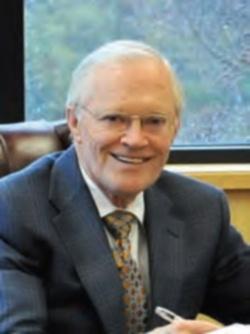Questions and Answers
Question: In the book of Job, we read, “But there is a spirit in man, and the breath of the Almighty gives him understanding” (Job 32:8). Later in the chapter, Job says, “the spirit within me compels me” (v.18). Do these Old Testament references refer to God’s Holy Spirit, or to an “immortal soul” within human beings?
Answer: The answer is—neither! Nevertheless, there is a “spirit” in all human beings; Scripture describes “the Lord, who stretches out the heavens, lays the foundation of the earth, and forms the spirit of man within him” (Zechariah 12:1). Most professing Christians believe that this spirit is an “immortal soul” that lives in us and leaves at death. In fact, this idea came not from the Bible, but from ancient Egyptians. It came to us through the Greeks, who first popularized the concept through the writings of Plato.
Jesus, by contrast, explained that a “soul” (Greek soma, Hebrew nephesh, referring to physical life and not a spirit essence) can be destroyed (Matthew 10:28)! Ezekiel said that “the soul who sins shall die” (Ezekiel 18:4, 20). So we see that the “soul” is not indestructible. “For the living know that they will die; but the dead know nothing” (Ecclesiastes 9:5). The dead have no consciousness. This means that, since no one but Jesus Christ has yet been raised from death to immortality, there are no sinners burning in Hell right now, nor are there disembodied spirits rolling around in Heaven waiting to be reunited with their bodies.
As an aside, what exactly is “Hell”? In your English- language Bible, two of the words translated as “Hell” are the Greek hades and the Hebrew sheol—both of which simply mean “grave” or “pit.” Other than Jesus Christ, everyone who has died is waiting for the resurrection, in what Scripture often calls a “sleep”—a metaphor for unconsciousness. They are in hades or sheol—in “Hell”—but this does not indicate a conscious condition of suffering; it is simply a description of their lifeless state in the grave as they await the resurrection.
At his creation, Adam became “a living soul” (Genesis 2:7, KJV). Human beings do not have a soul. A human being is a “soul.” What, then, is this “spirit” that is in every human being—and what is its purpose?
The patriarch Job stated, “But there is a spirit in man, and the breath of the Almighty gives him understanding (Job 32:8). When God created Adam and Eve, He gave them the breath of life, and also placed a non-physical element in their brains. This spirit essence, combined with the physical brain, makes possible the human intellect—mankind’s ability to think, reason, plan and create. God did not give these abilities to animals, who rely entirely on instinct. Animals have what in Hebrew is called ruach—the breath of life, which animates their otherwise-lifeless bodies—but they do not have the special animating force that God has given only to human beings.
Similarly, just as no animal can know the things of mankind, no human beings can properly understand the spiritually revealed things of God unless they have received a special spiritual element. The Bible reveals that mankind was created to need another spirit— the Holy Spirit of God—which works with the human spirit in the mind. “For what man knows the things of a man except the spirit of the man which is in him? Even so no one knows the things of God except the Spirit of God” (1 Corinthians 2:11).
Unlike the spirit in man, which can be subjected to the carnal and deceptive “broadcasts” of Satan the Devil, prince of the power of the air (Ephesians 2:2), the Holy Spirit allows mortal human beings to have access to the very nature of God. Through God’s plan of salvation, human beings can receive the Holy Spirit of God (Acts 2:38; John 7:38–39), which is added to the human spirit. We are spiritually “begotten” of God when we receive the Holy Spirit. The human spirit in man and the Holy Spirit of God join to make a spirit- begotten child of God (1 Peter 1:3; Romans 8:14–17), just as the male sperm cell and the female ovum join to make a begotten (but not yet ready for birth) human being. We then grow spiritually throughout our lives, until we are born again at the resurrection and join the God Family as divine beings composed wholly of spirit.





